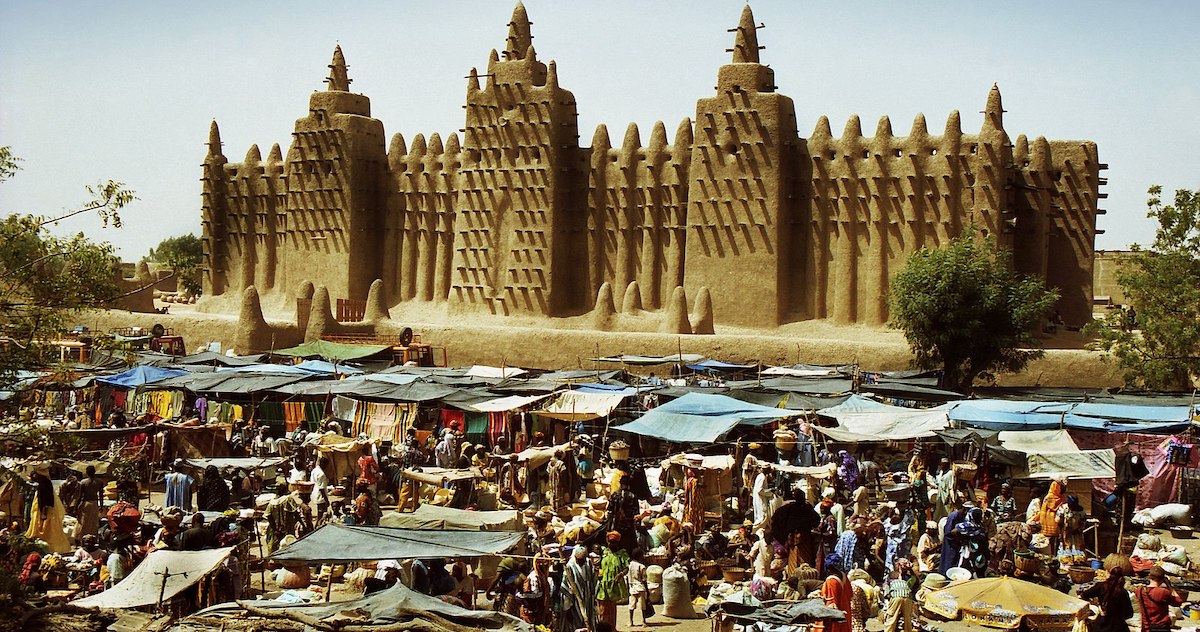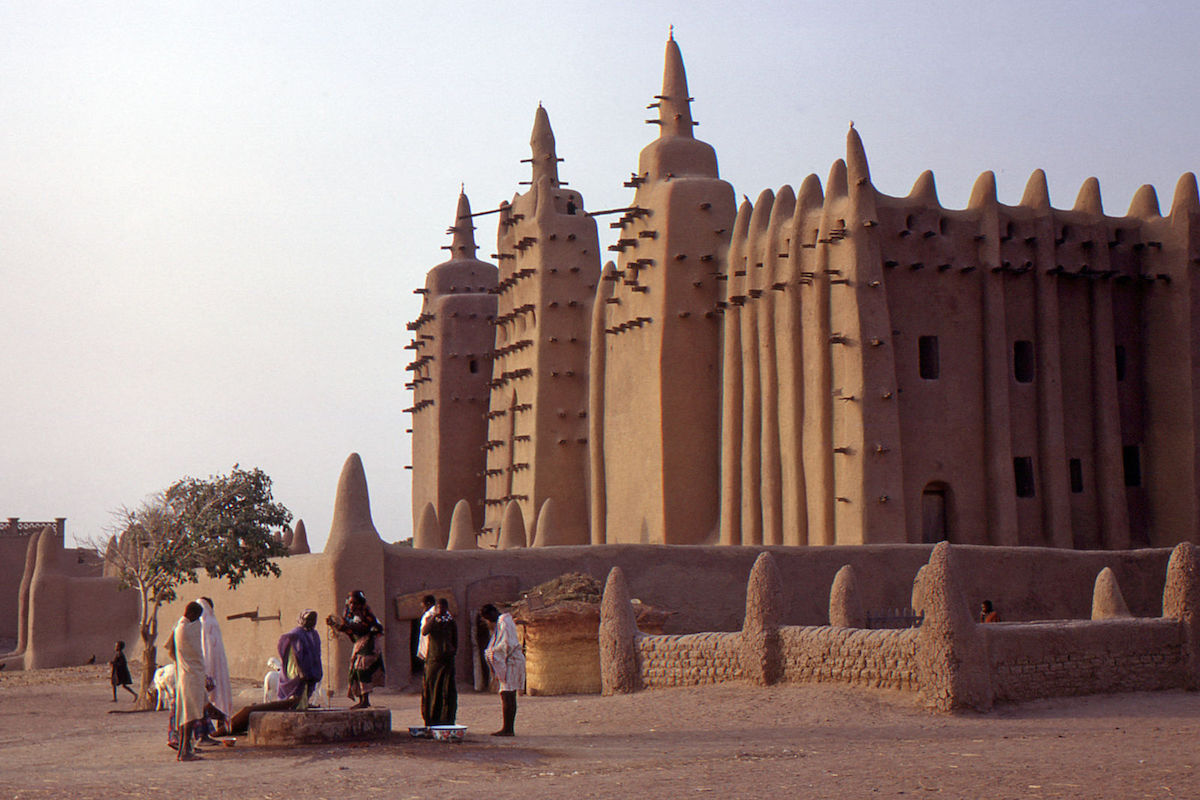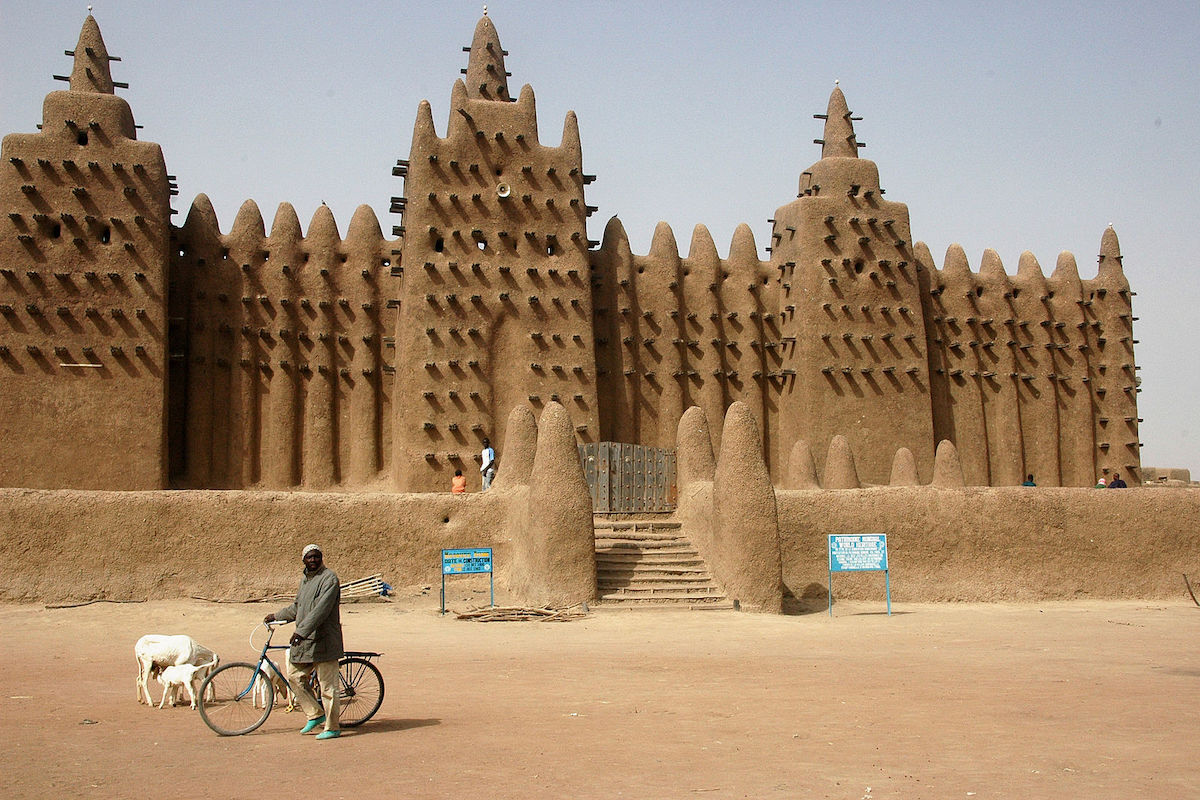By: Heather Keys
Located in central Mali, Djenné is a living museum recognized as a UNESCO World Heritage Site. Let’s explore a few highlights, including the the Great Mosque of Djenné and the Djenné Manuscripts.
A Little About Djenné

Photo by Dr. Ondřej Havelka (cestovatel) on Wikimedia Commons.
Djenné has been an influential cornerstone for Islamic learning and commerce, substantially shaping the course of West African civilization. Functioning as a hub for trade and a nexus for Islamic enlightenment, Djenné attracted the intellectually curious and trade-savvy from across broad horizons.
In an era characterized by modernization and globalization, Djenné stands out for its unique cultural persona. The community recognizes the value of preserving its heritage for posterity, and actively strives to safeguard its crafts and practices.
A few highlights for travelers include:
Djenné Old Town: The historic city itself is a UNESCO World Heritage Site. Its winding streets, lined with traditional mud-brick houses, offer a view into the city’s rich past.
Djenné Market: Every Monday, the square in front of the Great Mosque transforms into a bustling market.
Djenné-Jeno: Located just outside the current city, this is believed to be the original site of Djenné, and is considered one of the oldest known towns in Sub-Saharan Africa. While today it is mostly ruins, archeological digs at Djenné-Jeno have unearthed a wealth of artifacts, providing valuable insights into the early history of urban settlements in the region.
Pottery Square: Djenné is known for its distinctive pottery, particularly water jars known as ‘guinomi’. The pottery square is where locals gather to mold, decorate, and sell these and other clay items.
Maintaining the cultural essence of Djenné is an endeavor that carries relevance beyond its local context, extending to the global stage.
The Great Mosque of Djenné

Photo by Gilles MAIRET on Wikimedia Commons.
The Great Mosque of Djenné is one of West Africa’s most famous architectural feats. The mosque’s unique architecture and design reflect its cultural and religious significance. Its construction is a showcase of ancient techniques, comprising mud bricks, wooden infrastructure, and intricate designs and carvings along its façade.
The Great Mosque of Djenné assumes a central position within the local community, functioning as a hub for worship and a tangible manifestation of their cultural identity. The mosque invites individuals from all backgrounds to congregate in prayer, observe religious festivities, and connect with their roots. For the devout, the Great Mosque of Djenné possesses profound spiritual resonance. And its library is a trove of precious ancient manuscripts, providing invaluable resources for scholars exploring Islamic history and theology.
In its every facet, the Great Mosque of Djenné presents itself as a monumental homage to the region’s cultural, architectural, and spiritual lineage.
The Djenné Manuscripts
The Djenné Manuscripts, an incomparable collection of antique Islamic texts, illuminate the intellectual and cultural chronicle of West Africa. Traditionally, these texts have been held in private family libraries and mosques in Djenné and other cities in Mali, such as Timbuktu. They are written in Arabic and cover a range of topics, including religion, science, and history. The manuscripts provide important insights into the history of Islamic scholarship in the region and the ways in which West African societies have interacted with the broader Islamic world. In recent years, there’s been an effort to digitize and preserve the manuscripts, to make them available to a wider audience (while also curbing the risk of impairment from physical manipulation).
Ready to Travel?
If you’re ready for a truly one-of-a-kind experience, a visit to Djenné is a must. Immerse yourself in history, architecture, spirituality, and the shared celebration of our human heritage—and create memories that will last a lifetime.
About the Author
Originally from Indiana, Heather believes every destination has a story worth telling and a reason to visit. With a deep love of adventure, history, and psychology, she shares travel trivia, tips, and inspiration to encourage you to explore the world with curiosity and optimism. Read her other articles on Frayed Passport here.Featured image by Ruud Zwart on Wikimedia Commons.
Frayed Passport is a participant in the Amazon Associates Program, an affiliate advertising program designed to provide a means for sites to earn advertising fees by advertising and linking to Amazon.com. We also may share links to other affiliates and sponsors in articles across our website. If you have questions or concerns, please contact us.

